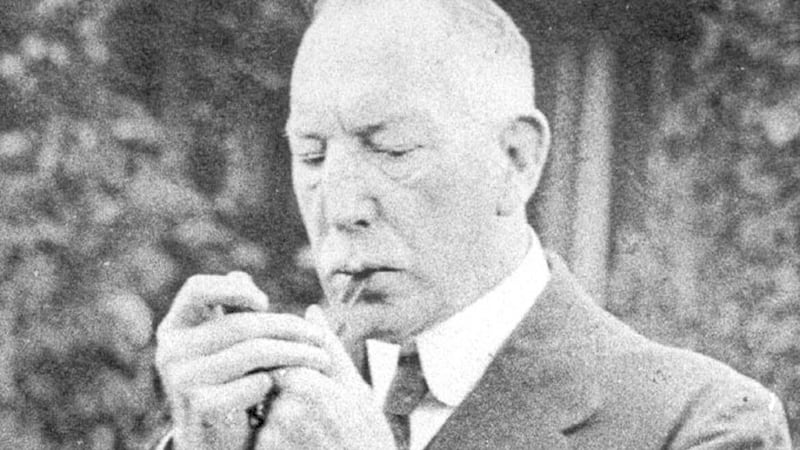Had Michelle O’Neill added the words “believed they had” whilst replying that republicans were left with ‘no alternative’ to the question posed regarding the IRA’s campaign in her recent BBC interview, the subsequent furore would have been avoided.
Throughout Irish history, there were many alternative choices not taken which could have better shaped the future. The choices taken by people in 1969 and in the years that followed were very much informed by decisions made well before then.
Violence and terror were essential to both establishing and maintaining the British writ in Ireland over many centuries and across the generations, just as terror was a prerequisite in ensuring that the sun never set on an Empire still retaining a special place in collective British memories - so much so that it continues to be invoked in the British honours system.
Irish independence, in the partial manner in which it was eventually achieved a century ago, was only attained through violence. Alternatives did exist at that time too, but few believe they would have resulted in the same level of political change.
Any discussions about ‘alternatives’ should not let the most powerful player off the hook by ignoring the reality that alternatives have always existed for the British state.
It is galling to hear the double standards of people proclaiming to oppose violence and terror yet who have given their support to the British state’s many conflicts, both in Ireland and abroad. Indeed, there are some who castigated Michelle O’Neill for her comments about attitudes to violence in a previous generation but whom would not themselves condemn outright today the Israeli government for the ongoing violence and terror it continues to inflict upon the Palestinian people which, in the past week alone, has killed enough children to fill a classroom.
The very foundation of the Northern Ireland state was a prime example of the violent alternatives chosen by the British government in Ireland. The mobilisation of the UVF by Craig and Carson was a direct nod to the violent suppression of the democratic desires of the Irish people. The issue was never that Northern Ireland was a 'cold house'; it was a house that was only built due to a triumph of violence and upon foundations of terror facilitating a privileged minority to retain and abuse power.
Alternatives have always existed, and it is true that both the SDLP and the majority of nationalists throughout the duration of the conflict did not support the IRA’s campaign. Oppressed communities have always faced similar dilemmas across the globe, and the debate between constitutionalism and violent resistance has been a constant in Irish history.
Partition only happened because unionist leaders chose to threaten terror and it was only through the descent into violence, once the Orange state reacted to the civil rights campaign a half century later, that tentative reforms began to be introduced.
Throughout the duration of the conflict, the British government’s desire to counter republicans proved to be a significant motivating factor dictating the implementation of further political reforms, including the Anglo Irish Agreement which was of particular significance as it involved subverting the unionist veto and formally establishing a role for the Irish government in the north.
It is not for no reason that, thirty years after 1969, Tony Blair told the SDLP’s Seamus Mallon that their problem was that they did not have any guns.
Our history is not black and white, and we should be wary of those incapable of recognising the grey areas after all we have been through. Contested narratives of the past are not new. Rather it is the airing of alternative perspectives in a public space long dominated by unionism which provokes the charge of history being rewritten.
Yet history is rewritten every time it is claimed that the Battle of the Boyne led to religious and civil liberties, ignoring the devastating impact of the subsequent Penal Laws which brought violence, terror and destruction. History is rewritten when it is claimed that the same RUC and B Specials who killed seven people in the first eight weeks of the conflict in the summer of 1969 were actually merely holding the line between warring tribes in this society.
Individuals, and organisations, which engage in violence ultimately are accountable for their actions. As is the case in all conflicts, many dreadful and barbaric deeds were committed during the Troubles by all sides. It is incumbent upon our leaders to not just acknowledge that but to balance the right to commemorate and remember with an obligation to be sensitive to the pain endured by victims and survivors.
But if we are going to have a serious conversation about the past, and the place of violence in our history, then it is going to have to be much broader than the one currently being had.
Nationalists only faced their choices in 1969 due to the alternative options taken by others, both then and in the past, which consigned them to a second class existence in an oppressive, hostile state.









